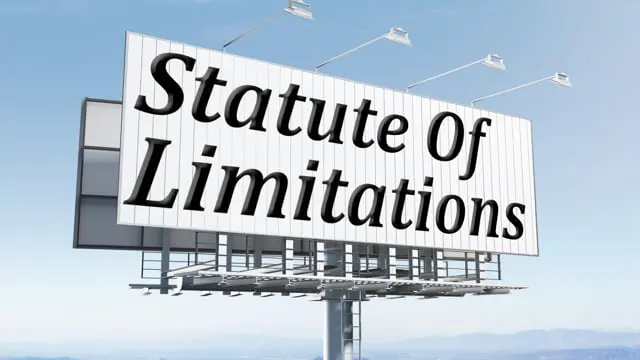Government contracts law encompasses a comprehensive set of regulations and legal frameworks that govern the procurement process between businesses and government entities. These laws ensure that government contracts are awarded and executed in a manner that is fair, transparent, and compliant with the law. Understanding these legal frameworks and the compliance requirements is essential for contractors, legal professionals, and businesses involved in government contracting.
Understanding Government Contracts Law
Government contracts law is designed to manage the entire procurement process and ensure that government contracts are awarded and executed fairly and transparently. This area of law involves multiple layers of regulations set by federal, state, and local government agencies, covering all aspects of the contracting process from solicitation and bidding to contract execution and performance.
One of the primary legal frameworks governing federal government contracts is the Federal Acquisition Regulation (FAR). The FAR provides a comprehensive set of rules and guidelines that govern the federal acquisition process. It aims to ensure that procurement is conducted in a manner that promotes competition, integrity, and accountability. The FAR is divided into several parts, each covering different aspects of the procurement process, including planning, solicitation, contract formation, and contract administration.
In addition to the FAR, other regulations and policies apply to government contracts, such as the Defense Federal Acquisition Regulation Supplement (DFARS) for defense contracts and the guidelines set by the Office of Federal Procurement Policy (OFPP). These regulations ensure that government contracts are managed effectively and that both the government and contractors fulfill their obligations.
Key Compliance Strategies
Cumplimiento de government contracts law is critical to avoid legal pitfalls and ensure successful contract performance. Here are some key strategies to ensure compliance:
- Understanding the Regulations: Contractors must thoroughly understand the regulations that apply to their contracts, including the FAR, DFARS, and other relevant guidelines. This involves staying updated with any changes or amendments to these regulations and ensuring that their practices align with legal requirements.
- Effective Contract Management: Eficaz contract management involves maintaining detailed documentation of all contract-related activities, including communications with government agencies, performance metrics, and financial records. This documentation is crucial for demonstrating compliance and resolving any disputes that may arise.
- Training and Education: Regular training and education for all personnel involved in government contracts are essential to ensure compliance. This includes training on the specific requirements of the FAR and other applicable regulations, as well as best practices for contract management and performance.
- Internal Audits and Reviews: Conducting regular internal audits and reviews can help identify any areas of non-compliance and take corrective action before issues escalate. These audits should assess all aspects of contract performance, including financial management, adherence to timelines, and compliance with regulatory requirements.
- Engaging Legal Professionals: Legal professionals who specialize in government contracts law can provide invaluable guidance on compliance and help navigate the complexities of government procurement. They can assist with contract negotiations, compliance audits, and resolución de litigios, ensuring that contractors meet all legal requirements.
The Role of the FAR in Government Contracting
En Federal Acquisition Regulation (FAR) is the primary set of rules governing federal government procurement. It establishes uniform policies and procedures for acquiring goods and services, ensuring that the process is conducted with integrity and transparency. The FAR emphasizes several key principles:
- Promoting Competition: The FAR requires that government contracts be awarded through competitive bidding processes, where multiple contractors can submit proposals. This ensures that the government receives the best value for taxpayer dollars and that the contracting process is fair and transparent.
- Ensuring Integrity and Accountability: The FAR emphasizes ethical conduct in government contracting. Contractors must adhere to strict ethical standards, including avoiding conflicts of interest and ensuring that their actions do not compromise the integrity of the procurement process. Compliance with these ethical standards is critical for maintaining trust and credibility in government contracting.
- Streamlining Procurement: The FAR aims to make the procurement process more efficient and effective. It provides guidelines for various stages of the contracting process, including planning, solicitation, evaluation, award, and administration, ensuring that each step is conducted efficiently and in compliance with the law.
Contract Management Best Practices
Effective contract management is crucial for ensuring compliance with government contracts law and achieving successful contract performance. Here are some best practices for managing government contracts:
- Detailed Record-Keeping: Maintaining detailed records of all contract-related activities is essential for demonstrating compliance and resolving any disputes. This includes keeping records of communications with government agencies, performance metrics, financial transactions, and any modifications to the contract.
- Performance Monitoring: Regularly monitoring and evaluating contract performance is critical for identifying any issues and taking corrective action. This involves tracking key performance indicators, conducting regular performance reviews, and ensuring that all contractual obligations are met.
- Comunicación clara: Clear and effective communication with government agencies is vital for successful contract performance. Contractors should establish open lines of communication with their government counterparts, provide regular updates on contract progress, and promptly address any issues that arise.
- Risk Management: Identifying and managing risks is a key component of effective contract management. Contractors should conduct risk assessments to identify potential risks, develop mitigation strategies, and monitor risks throughout the contract lifecycle.
- Compliance Audits: Regular compliance audits can help ensure that all contractual and regulatory requirements are met. These audits should assess all aspects of contract performance, including financial management, adherence to timelines, and compliance with FAR and other applicable regulations.
Legal Disputes and Resolution in Government Contracting
Despite best efforts to ensure compliance, disputes can still arise in government contracting. These disputes may involve issues such as contract interpretation, performance deficiencies, or payment disagreements. Resolving these disputes promptly and effectively is critical for maintaining positive relationships with government agencies and ensuring successful contract performance.
One of the primary forums for resolving government contract disputes is the Civilian Board of Contract Appeals (CBCA), which hears and decides contract disputes between government contractors and federal agencies. The CBCA provides an independent and impartial forum for resolving disputes, ensuring that both parties have the opportunity to present their case and receive a fair decision.
In addition to the CBCA, disputes can also be resolved through alternative dispute resolution (ADR) methods such as mediation and arbitration. ADR can be a more cost-effective and timely way to resolve disputes, allowing both parties to reach a mutually agreeable solution without the need for lengthy litigation.
Engaging legal professionals who specialize in government contracts law is essential for resolving disputes. These professionals can provide expert guidance on the dispute resolution process, represent contractors in hearings and negotiations, and help develop strategies for resolving disputes effectively.
The Importance of Ethical Conduct in Government Contracting
Ethical conduct is a cornerstone of government contracts law. Contractors must adhere to strict ethical standards to ensure the integrity of the procurement process. Ethical conduct involves avoiding conflicts of interest, ensuring transparency in all dealings with government agencies, and adhering to fair competition practices.
En FAR includes specific provisions to prevent unethical conduct, such as prohibiting contractors from offering bribes or kickbacks to government officials. Contractors are also required to disclose any potential conflicts of interest and to avoid actions that could compromise the fairness of the procurement process.
Adhering to ethical standards is critical for maintaining trust and credibility in government contracting. Contractors who engage in unethical conduct risk damaging their reputation, facing legal penalties, and being disqualified from future government contracts.
Best Practices for Ethical Conduct
- Training and Education: Contractors should provide regular training on ethical conduct to all personnel involved in government contracts. This training should cover the specific ethical standards required by the FAR and other applicable regulations, as well as best practices for maintaining integrity and transparency in the procurement process.
- Implementing Ethical Policies: Contractors should develop and implement comprehensive ethical policies that outline the standards of conduct expected from all employees. These policies should include procedures for reporting unethical behavior, guidelines for avoiding conflicts of interest, and measures to ensure transparency in all dealings with government agencies.
- Conducting Regular Audits: Regular audits can help identify any potential ethical violations and take corrective action before issues escalate. These audits should assess all aspects of contract performance, including financial management, communications with government agencies, and adherence to ethical standards.
- Encouraging Open Communication: Contractors should establish open lines of communication to encourage employees to report any concerns about unethical behavior. This can help identify and address potential issues early and ensure that all employees understand the importance of ethical conduct in government contracting.
Conclusión
Government contracts law is a complex and multifaceted area that requires a deep understanding of legal frameworks and compliance requirements. By thoroughly understanding the regulations, implementing effective compliance strategies, and engaging legal professionals, contractors can navigate the complexities of government contracting and achieve successful contract performance.
For more information on government contracts law and to find qualified legal professionals who can assist with your contract management and compliance needs, visit Abogados.Media. This platform provides access to a wide range of legal resources and expert guidance to support your government contracting efforts.
This article provides a comprehensive overview of government contracts law and highlights the importance of understanding legal frameworks and compliance strategies. By following best practices and seeking expert guidance, contractors can effectively navigate government contracts and achieve successful outcomes.








